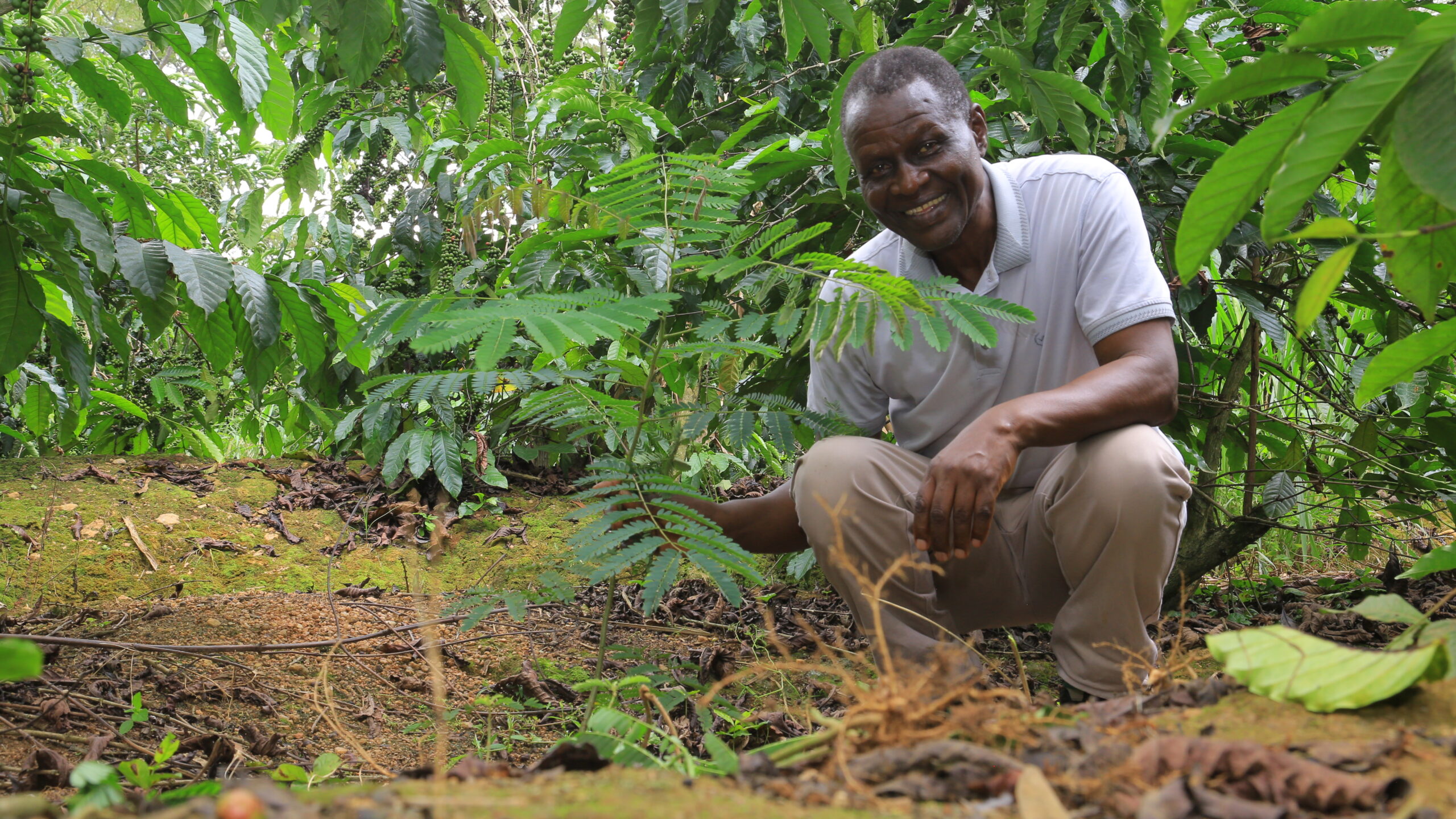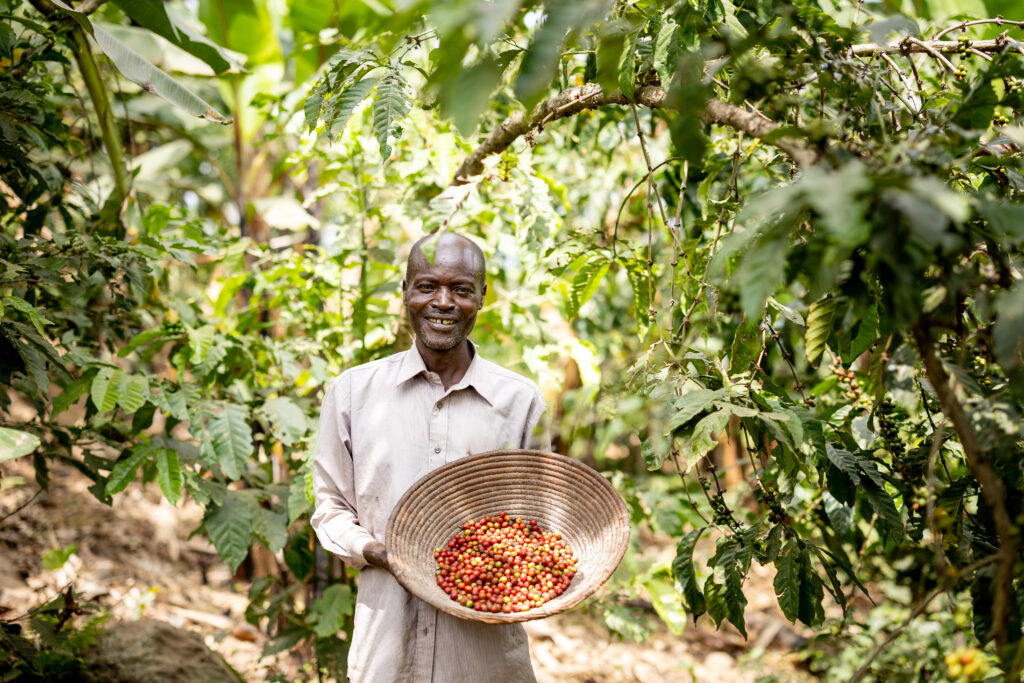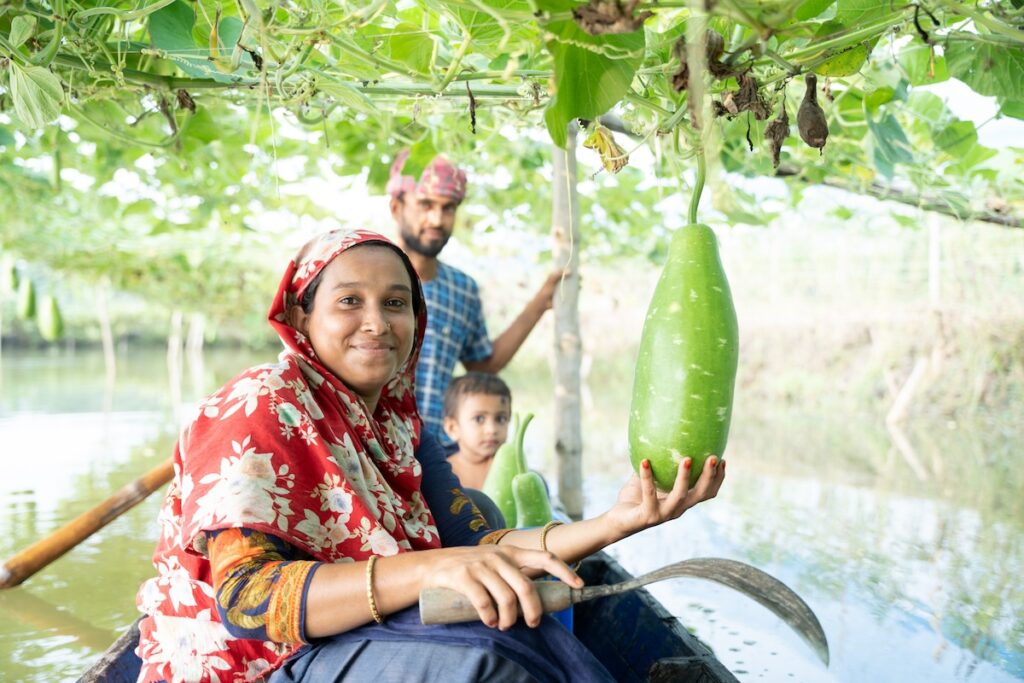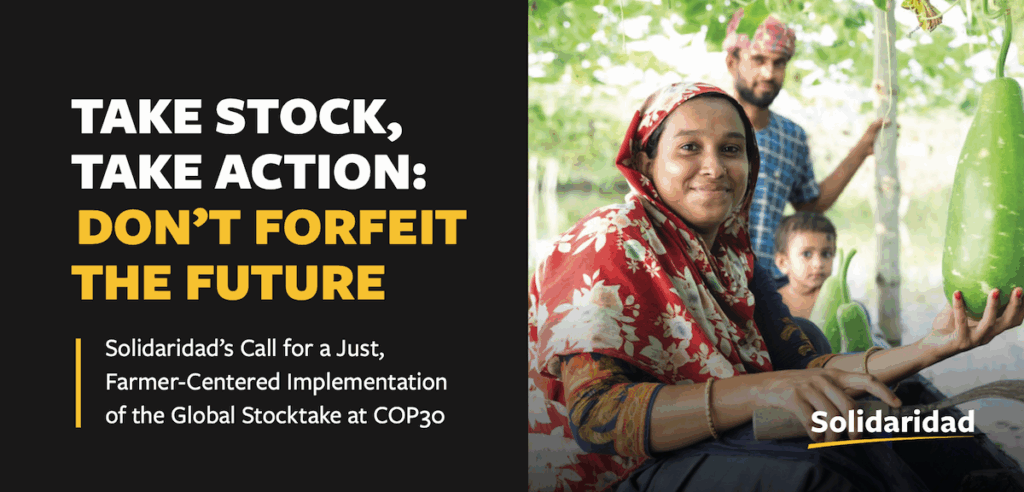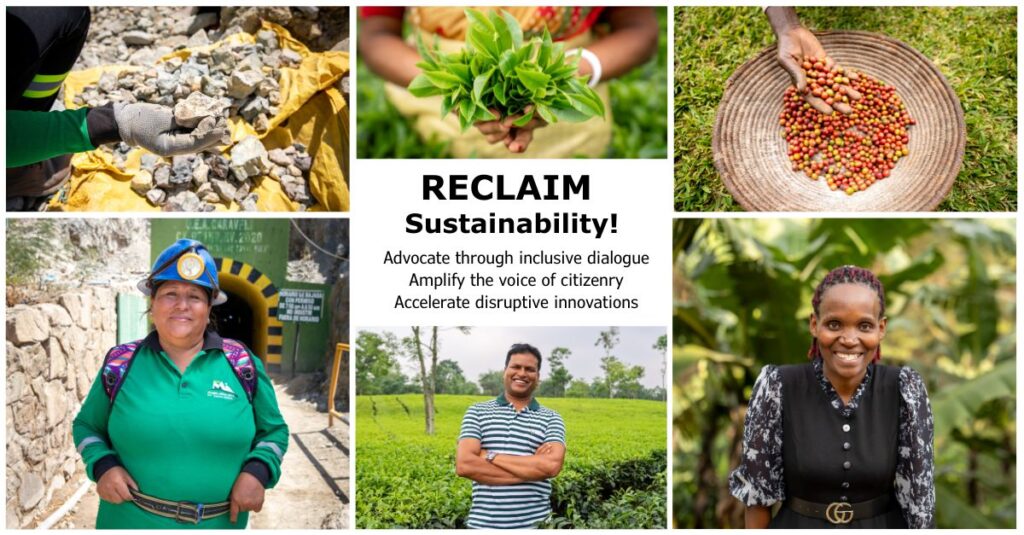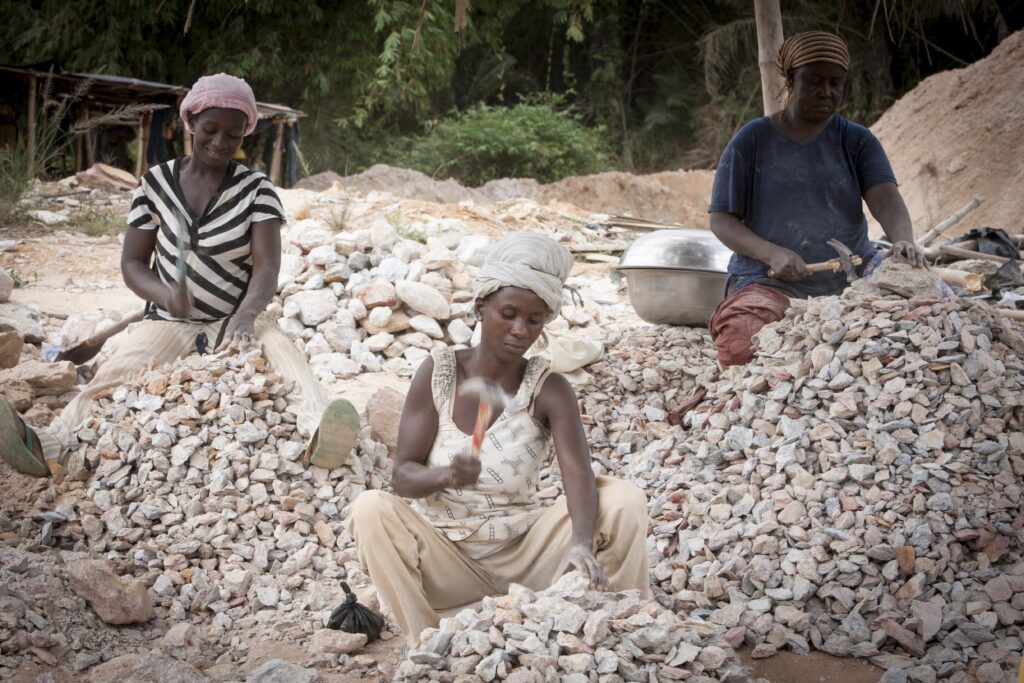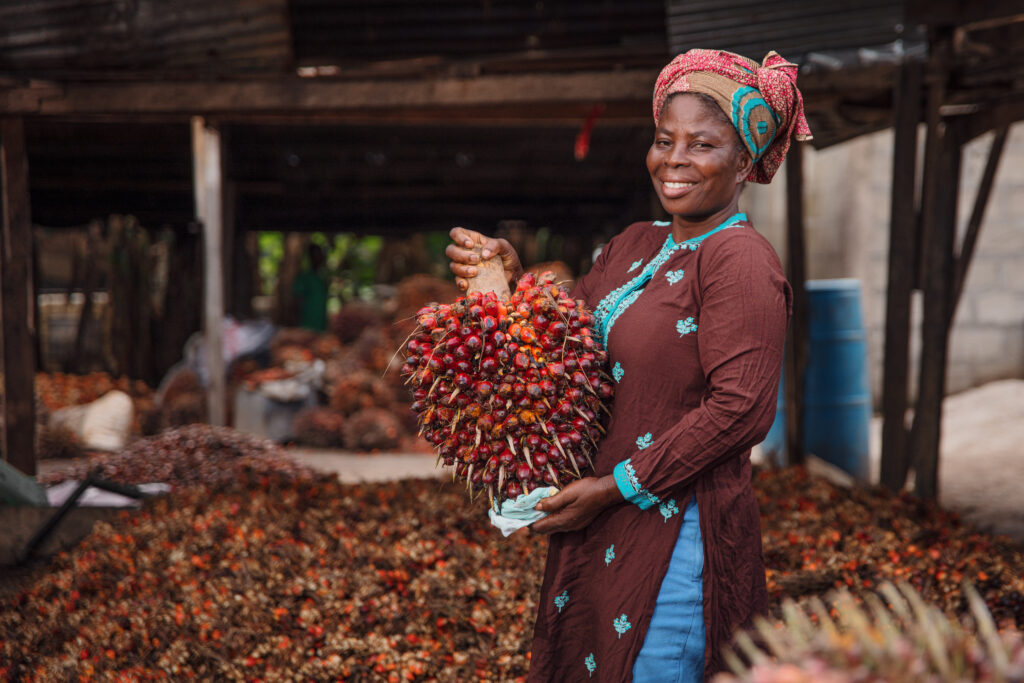From Coffee Farms to Carbon Credits: How Insetting Transforms Supply Chains
The Climate Heroes programme focuses on equipping smallholder farmers with the tools and knowledge to implement climate smart practices, such as agroforestry and sustainable land management. These methods don’t just improve farm productivity due to soil health and biodiversity—they also allow farmers to generate Carbon Removal Units (CRUs), creating an additional revenue stream while reducing carbon footprints.
Why is this relevant for companies? Companies that source from these farmers can integrate traceable carbon insetting into their supply chains. Unlike traditional carbon offsetting, which compensates for emissions externally, insetting directly reduces emissions within a company’s own supply chain, making sustainability efforts more impactful and credible.
Piloting Fairfood’s Traceability Tool: Track And Verify Carbon In Real Time
One of the biggest challenges in sustainable supply chains is proving impact. That’s where Fairfood comes in. Using Trace, their cutting-edge traceability platform, the tool enables companies to track and verify carbon removal in real time. This blockchain-powered tool ensures that each CRU is directly linked to specific farming practices, providing companies with credible, verifiable sustainability claims.
Together, Fairfood and Solidaridad conducted a pilot project in Greater Masaka, Uganda, from 2022 – 2024. The key outcomes:
✔ 7,102 smallholder coffee farmers onboarded to the Trace platform
✔ 353 metric tons of CO₂ removal (this is equivalent to the operation of 82.3 gasoline-powered passenger cars for one year)
✔ These CRUs were integrated into traceable coffee batches, offering corporate buyers a transparent and credible way to meet their Scope 3 emissions targets.
TRACE dashboards and storytelling tools effectively visualise sustainability impacts and link CRUs to specific coffee batches, providing potential buyers with strong narratives.
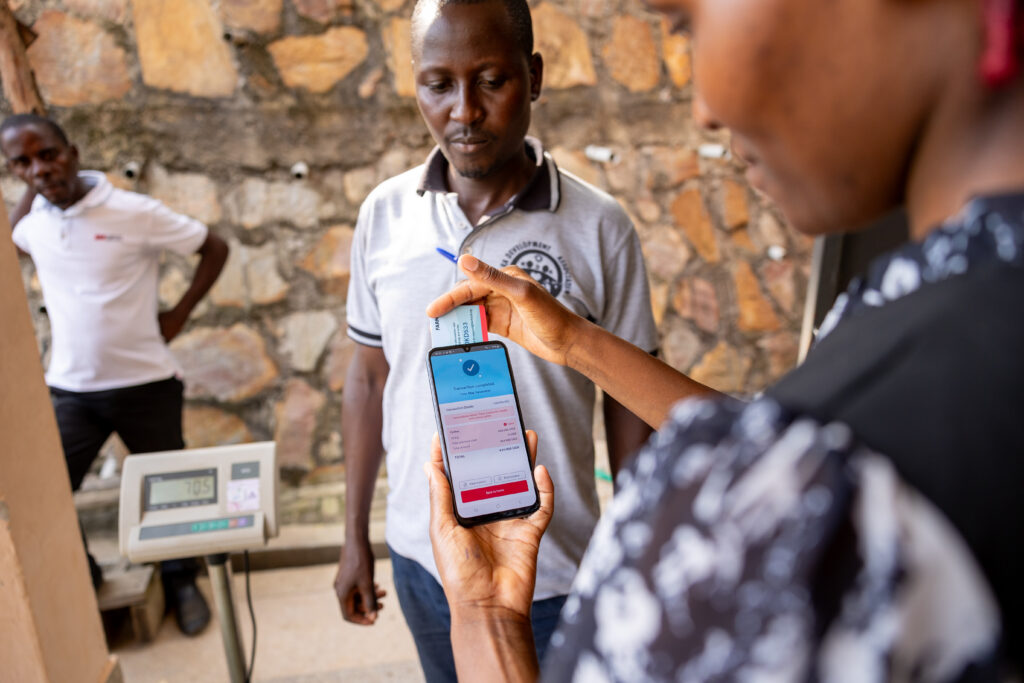
Making Carbon Insetting Work: 5 Lessons we Learned
Throughout this pilot phase in Uganda, we generated some interesting insights—helping to identify what is needed to make carbon insetting work at scale. Five key lessons emerged:
- Alignment required: Collaboration with farmers has shown promising results. But to maintain progress, challenges related to market uptake should be addressed, emphasizing the need for clear alignment on business priorities and value propositions to ensure long-term partner commitment.
- The business case is critical for full adoption: Insetting needs a stronger business case to scale. Companies must see clear financial benefits over offsetting.
- Cooperatives are essential for scaling but need buyer commitment: Farmer cooperatives, such as Ndugu in Greater Masaka, demonstrated their ability to efficiently organize farmers and implement climate-smart practices. However, the financial benefits for farmers hinge on strong buyer participation in CRU purchases.
- Transparency and storytelling build value but require market demand: Tools like Trace dashboards and storytelling features effectively visualized impacts, linking CRUs to specific coffee batches. Yet, transparency must be met with a real market demand for verified, sustainability-linked products to ensure long-term financial viability.
- Balancing collaboration and competition in partnerships: Finally, the pilot showed that navigating between collaboration and competition requires care. Shared sustainability goals are crucial, but different commercial interests must be managed thoughtfully to maintain trust and mutual benefit within partnerships.
The pilot in Uganda provided a strong foundation for scaling traceable carbon insetting. By demonstrating how Trace enables smallholder farmers to generate verifiable Carbon Removal Units (CRUs) and link them to supply chains, we have created a replicable model for sustainable value chains. Find more detailed insights in the full case study (PDF)!
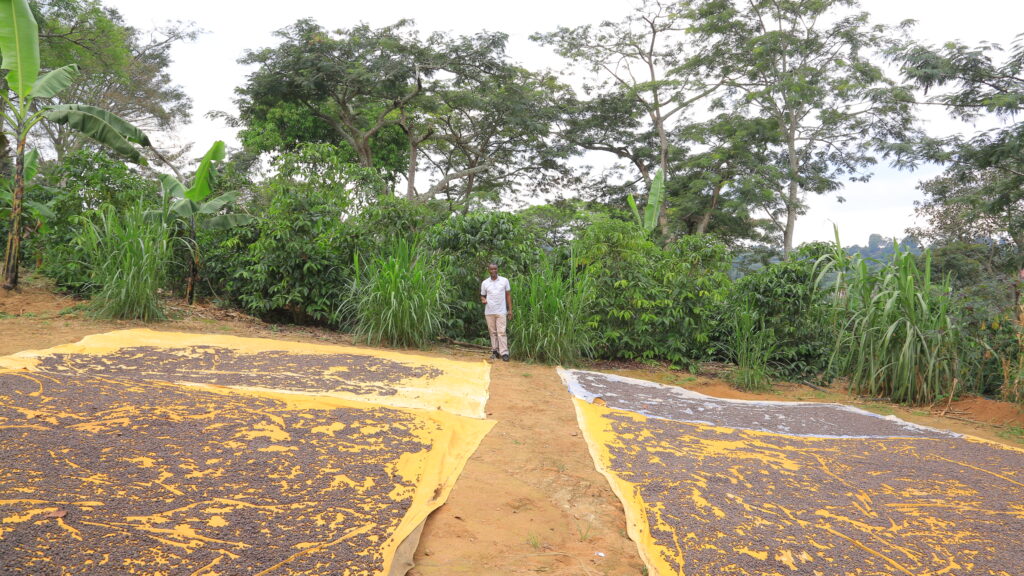
Scaling Up: How Solidaridad Helps Businesses Future-Proof Their Coffee Supply Chains
Through the Climate Heroes programme, Solidaridad offers companies a reliable and scalable pathway to decarbonize their supply chains while driving meaningful climate action. By working directly with smallholder farmers, Solidaridad helps businesses embed traceable carbon insetting into their sourcing models—strengthening supply chain resilience, enhancing brand credibility, and supporting farmers in building more sustainable livelihoods.
By partnering with Solidaridad, businesses can not only credibly report emissions reductions, but also contribute to the transformation of agricultural landscapes. Investing in regenerative farming and carbon farming initiatives helps companies secure future-proof supply chains, while showcasing real and verifiable sustainability impacts to consumers, investors, and stakeholders.
Solidaridad is now inviting companies to collaborate in scaling this approach. By working together we can create tangible climate impact directly within your supply chains. Reach out to Martine Krabben at 📩 martine.krabben@solidaridadnetwork.org to get into touch!

